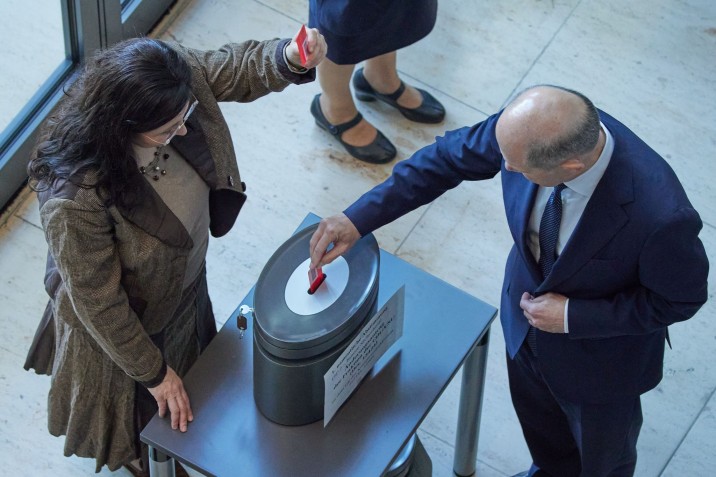Admin I Saturday, October 18, 2024
BERLIN – The upper house of the German parliament, or Bundesrat has elected Anke Rehlinger as its new president.
Rehlinger, of Chancellor Olaf Scholz’s Social Democrats (SPD), is to replace Manuela Schwesig, the SPD premier of the eastern German state of Mecklenburg-Vorpommen, on November 1.
A new Bundesrat president is selected from a different state every year, following a set order determined by the population of the German states.
Rehlinger is the premier of the western state of Saarland. The state’s presidency of the Bundesrat has the motto “future through change.”
“Cooperation between the federal government and the states is the backbone of our democracy,” Rehlinger said after the vote.
According to the German constitution, the president of the Bundesrat stands in for the federal president during the latter’s absences.
The outgoing Schwesig said that the current “harsh polarization” of political and social debate was not good for the country.
“We have to come closer together again,” she said, calling for a clear stance against extremism, anti-Semitism, division and incitement.
“There can be no cooperation with forces that question or even want to abolish our free and democratic basic order,” Schwesig said, urging citizens to keep the Bundesrat free from right-wing populism.
The far-right Alternative for Germany has received a surge of support in three recent state elections.
German also lawmakers approved a package of security and immigration measures proposed by Chancellor Olaf Scholz’s centre-left coalition in response to suspected Islamist attacks earlier this year.
Expanded emergency police powers to use biometric data in terrorism investigations have been blocked on Friday by the upper chamber of Germany’s parliament, the Bundesrat.
The enhanced police powers were part of a broader security package backed by Chancellor Olaf Scholz’s centre-left coalition government. The expanded police powers had been passed by the lower house of Germany’s parliament, the Bundestag, earlier on Friday.
The security package also included a broad ban on carrying knives at public events such as sporting events and festivals, as well as limits on benefits for asylum seekers obliged to leave the country under the EU’s so-called Dublin rules.
The migration and weapons restrictions were passed into law on Friday. But the Bundesrat, which is made up of the leaders of Germany’s 16 federal states, voted down the expanded police powers portion of the package.
